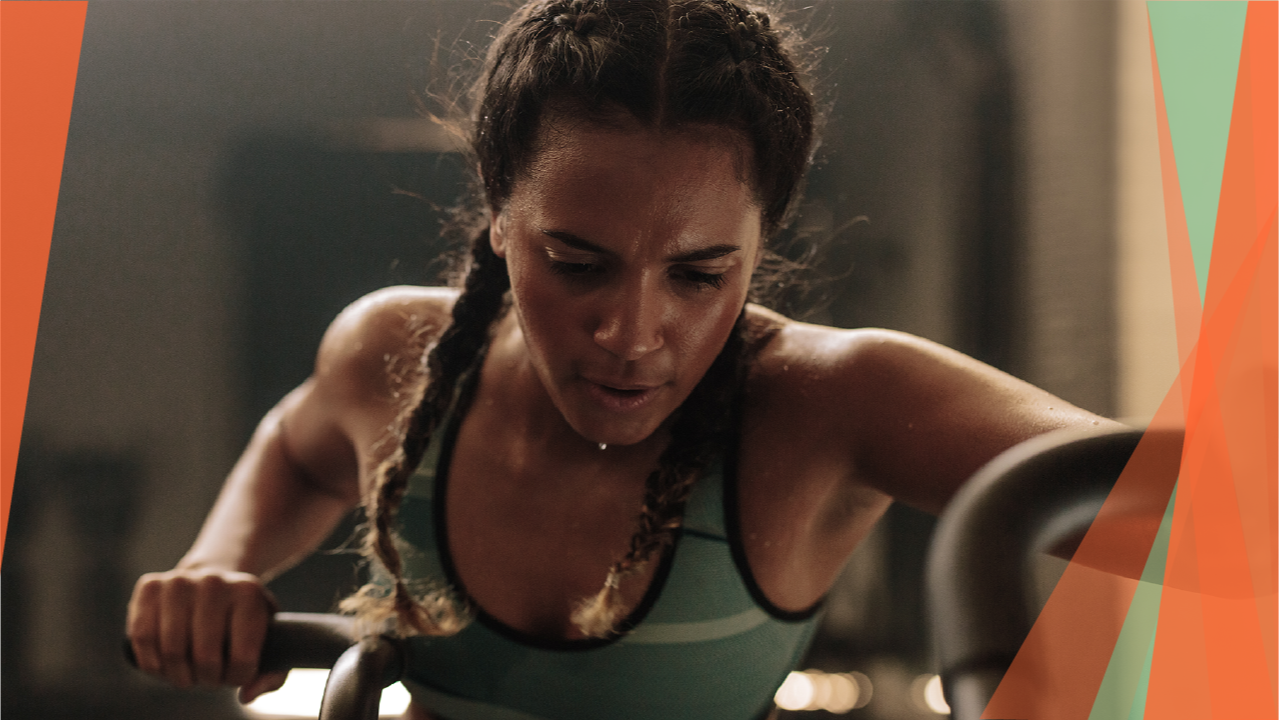Period Power
Aug 26, 2021
Menstruation can be prime time for PRs. Here’s how to go with the flow (no matter how heavy your flow).
“What’s the matter, you on the rag?”
“Hey ‘ladies,’ are you going to get your heads in the game, or do you need some tampons?”
When I was coming up through sports, it wasn’t uncommon for male coaches to berate their players with “period taunts,” because if there was anything worse than “playing like a girl” it was “playing like a girl on her period.” To be honest, though we’ve come a long way, you can still hear this sort of B.S. emanating from locker rooms, team busses, and playing fields around the world.
Is it any wonder that women have internalized these messages? That though there are more women than ever lifting heavy shit, racing bikes, running marathons, and picking up even the most traditionally male-dominated sports that we still get worried that we might get our period on a day we’re hoping to be our best? Is it any surprise that we still equate having our periods with a time we need to “take it easy?”
As I’ve explained many times, the opposite is true. Your sex hormones are at their lowest point the week that you’re on your period. This is when your body is more resilient to stress and a great time to nail your high-intensity sessions because you recover better. So never let someone tell you that you should expect to feel flat, tired, and sluggish because you have your period. That’s a myth.
That said, not every woman will feel like crushing it during that transition from the late luteal (what we call pre-menstrual) to the early follicular (the start of your period) phase. A hidden issue here is heavy and/or prolonged bleeding termed menorrhagia.
As much as we are empowering women to talk about having a period, there is still a stigma around talking about what is normal, because we’re talking about bleeding and bleeding talk is still a bit taboo. So let’s bring that out in the open right now.
In a normal menstrual cycle, a woman loses an average of 2 to 3 tablespoons (35 to 40 milliliters) of blood over four to eight days. However, some women lose a lot more blood--5 to 6 tablespoons (approximately 80 milliliters) or more--during their menstrual period. That’s considered heavy menstrual bleeding (HMB) and it’s fairly common, affecting up to a quarter of the female population.
I know what you’re thinking, “How the heck do I know how many tablespoons of blood I lose a month??” That’s part of what makes diagnosing HMB tricky. We don’t really talk about bleeding, so women are likely to think no matter how much they bleed, that must be normal menstruation. And again, women don’t typically run around measuring their menstrual blood loss. The full medical definition may help: “excessive menstrual blood loss, which interferes with a woman’s physical, social, emotional and/or material quality of life.” If that sounds like you, you may have HMB.
To be more specific, in a recent Europe-wide study, a diagnosis of HMB was given if two or more of the following criteria were met: 1. passing of large blood clots, 2. need for double sanitary protection (both towels and tampons), 3. need for frequent changes of tampons and towels (meaning changes every 2 hours or less, or 12 sanitary items per period) and 4. flooding through to clothes or bedding. If you have two or more of those, you likely know it!
This level of bleeding can make it physically and psychologically difficult to feel powerful during your period. For generally heavy periods, consider using a menstrual cup, which can hold about 30ml or twice as much menstrual flow as either a super-absorbent tampon or a pad. Also, consider investing in period-proof undies, shorts, and/or leggings. Companies like Adidas, Thinx, and ModiBodi are producing apparel, activewear, and underwear that replace and/or supplement your usual menstruation products.
Another major concern with HMB is the susceptibility to iron-deficiency anemia. For women who experience heavy bleeding monthly, iron stores may be constantly on the low side, making it almost impossible to get on top of the iron issues. Supplementation can help, but often the woman is sitting on the low end of normal.
While HMB has been shown to affect more than a quarter of women in the general population, the prevalence of HMB (and the impact it has on training and performance) in female athletes is upwards of 35 percent. Even though there is such a high incidence, those seeking medical help are very small; mostly because they do not realize HMB is not normal.
If you have the symptoms for HMB, do not think you need to suffer. There is help available. Start by talking to your doctor as there are several treatments, which can be as simple as a progestin IUD.
Finally, it’s important to acknowledge that our hormones don’t go on and off like a light switch and they’re not the same for everybody. The rate your hormones drop may be different from the rate another woman’s drop. Some women may feel like a superhero when their periods start. Others may need a day or two in the transition before their low-hormone status kicks in and amps up their recovery and performance.
That’s why I recommend tracking your cycle along with your performance and getting to know your own monthly rhythms. Having and working with that knowledge is how you can truly master going with the flow and finding your period power.
Stay Connected!
Subscribe to get email notifications which include the 'Extra Bit'. In this segment, I relax (a bit) and talk about my less formal life.
We hate SPAM. We will never sell your information, for any reason.


